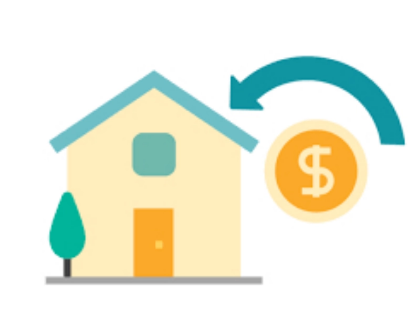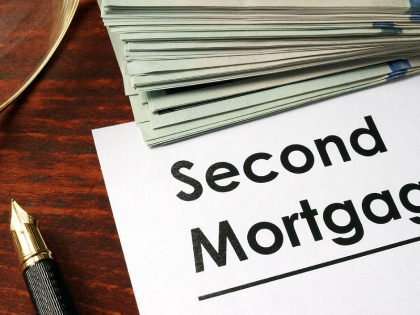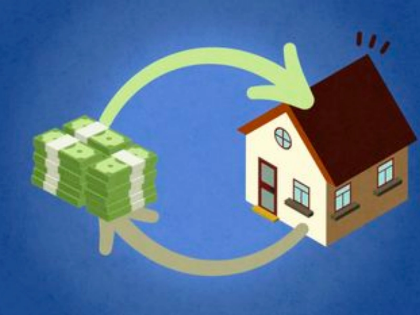How to Calculate Your Monthly Payments with a Mortgage Loan
A useful tool for estimating potential monthly mortgage payments is a mortgage loan calculator. Finding the perfect mortgage payment that works within your budget can be accomplished by experimenting with factors like interest rates, down payments, and housing prices. Certain calculators additionally compute the extra expenses associated with becoming a homeowner, like property taxes and homeowners insurance.
Rate of Interest
 Interest is paid on your mortgage with the majority of your payment, so the interest rate greatly affects your monthly payment amount. You can play around with the calculators to see how different rates, loan amounts, and periods impact your monthly payments.
Your appropriate loan term might also be found with the use of a mortgage calculator. Longer loan durations result in lower monthly payments but higher interest rates, whereas shorter loan terms often entail higher monthly payments but lower interest rates.
Selecting the appropriate term might be crucial, particularly as it can protect you from future fees and expenses that aren't essential. To find out how much money you'll have left over each month after deducting your estimated costs for property taxes, homeowner's insurance, and condo or HOA dues (if applicable), you can also use a mortgage calculator. This can help you determine whether buying a house is within your means.
Interest is paid on your mortgage with the majority of your payment, so the interest rate greatly affects your monthly payment amount. You can play around with the calculators to see how different rates, loan amounts, and periods impact your monthly payments.
Your appropriate loan term might also be found with the use of a mortgage calculator. Longer loan durations result in lower monthly payments but higher interest rates, whereas shorter loan terms often entail higher monthly payments but lower interest rates.
Selecting the appropriate term might be crucial, particularly as it can protect you from future fees and expenses that aren't essential. To find out how much money you'll have left over each month after deducting your estimated costs for property taxes, homeowner's insurance, and condo or HOA dues (if applicable), you can also use a mortgage calculator. This can help you determine whether buying a house is within your means.
Initial Payment
 You can calculate your potential monthly payment using a mortgage loan calculator by entering the price of your house, the loan amount, and the interest rate on the mortgage. When estimating the prospective cost of house ownership, it's crucial to take into account extra expenses like property taxes, insurance, and HOA dues.
To cover the costs of homeowners' insurance and local property taxes, your lender or mortgage servicer may establish an escrow account. Your PITI, or monthly mortgage payment, will increase by these sums.
You may estimate how much of a down payment you might have to make with the aid of a mortgage loan calculator. A down payment can significantly lower your monthly home ownership costs. Down payments are often expressed as a percentage of the purchase price of the property. Furthermore, your choice of down payment may have an effect on whether you require mortgage insurance. Before deciding to buy, you can use a mortgage calculator to see how much house you can afford and to compare rates and lending choices.
You can calculate your potential monthly payment using a mortgage loan calculator by entering the price of your house, the loan amount, and the interest rate on the mortgage. When estimating the prospective cost of house ownership, it's crucial to take into account extra expenses like property taxes, insurance, and HOA dues.
To cover the costs of homeowners' insurance and local property taxes, your lender or mortgage servicer may establish an escrow account. Your PITI, or monthly mortgage payment, will increase by these sums.
You may estimate how much of a down payment you might have to make with the aid of a mortgage loan calculator. A down payment can significantly lower your monthly home ownership costs. Down payments are often expressed as a percentage of the purchase price of the property. Furthermore, your choice of down payment may have an effect on whether you require mortgage insurance. Before deciding to buy, you can use a mortgage calculator to see how much house you can afford and to compare rates and lending choices.
Duration of the Loan
 A mortgage calculator will assist you in determining if you can afford the monthly mortgage and interest payments when you're looking for a house. Entering the home's price, down payment, and interest rate on a mortgage loan is the fundamental computation. You then decide on the best loan term. You may choose to choose a shorter loan period, which can mean larger payments but will enable you to pay off the debt much sooner, depending on your lifestyle and financial objectives.
The calculator allows you to play around with other parameters as well, such as loan amortization and payback schedules, which can have a big impact on your long-term financial plan and budget. You can get a better grasp of the relationship between your income, expenses, down payment, house price, and interest rate by experimenting with different variables. You'll also gain an understanding of the home-buying or refinancing process with this knowledge.
A mortgage calculator will assist you in determining if you can afford the monthly mortgage and interest payments when you're looking for a house. Entering the home's price, down payment, and interest rate on a mortgage loan is the fundamental computation. You then decide on the best loan term. You may choose to choose a shorter loan period, which can mean larger payments but will enable you to pay off the debt much sooner, depending on your lifestyle and financial objectives.
The calculator allows you to play around with other parameters as well, such as loan amortization and payback schedules, which can have a big impact on your long-term financial plan and budget. You can get a better grasp of the relationship between your income, expenses, down payment, house price, and interest rate by experimenting with different variables. You'll also gain an understanding of the home-buying or refinancing process with this knowledge.
Additional monthly costs
 You can use mortgage loan calculators to estimate your monthly payments while accounting for key factors like the cost of your house, your down payment, and the interest rate on your mortgage. They can also demonstrate to you how adjustments to the interest rate on the loan or even the length of the mortgage would impact your overall monthly expenses.
The estimate for your additional monthly expenses, sometimes known as taxes and insurance, is another important piece of information that a mortgage calculator may provide. These consist of real estate taxes, homeowner's insurance, and, if necessary, condo or HOA dues.
When buying a home, it's critical to take these extra expenses into account since they may raise your debt burden and limit how much you can afford to spend on a property. You may obtain a ballpark figure for these expenses using a mortgage calculator, and you can obtain a more precise understanding of your financing alternatives by applying to be pre-qualified for a mortgage. As a result, you are able to make better judgments while purchasing a property.
You can use mortgage loan calculators to estimate your monthly payments while accounting for key factors like the cost of your house, your down payment, and the interest rate on your mortgage. They can also demonstrate to you how adjustments to the interest rate on the loan or even the length of the mortgage would impact your overall monthly expenses.
The estimate for your additional monthly expenses, sometimes known as taxes and insurance, is another important piece of information that a mortgage calculator may provide. These consist of real estate taxes, homeowner's insurance, and, if necessary, condo or HOA dues.
When buying a home, it's critical to take these extra expenses into account since they may raise your debt burden and limit how much you can afford to spend on a property. You may obtain a ballpark figure for these expenses using a mortgage calculator, and you can obtain a more precise understanding of your financing alternatives by applying to be pre-qualified for a mortgage. As a result, you are able to make better judgments while purchasing a property.











